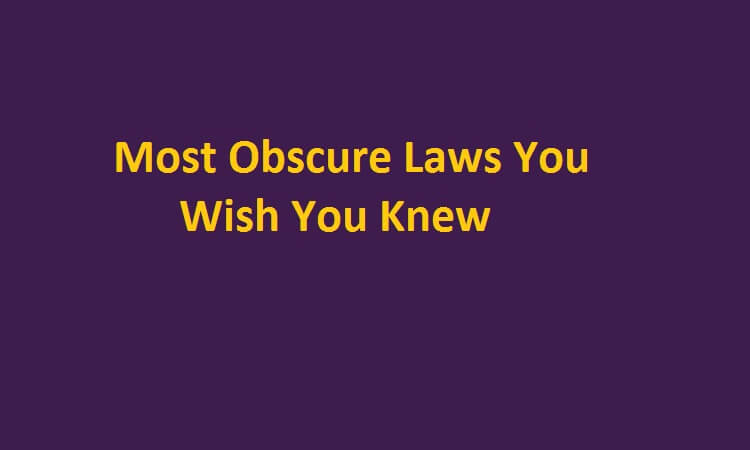There is so much information out there that we don’t even know it exists. There is no limit to knowledge. It truly is infinite and unlimited. The visible amount of it also seems like so much. It’s hard not to get goosebumps when you consider the infinite source of knowledge and creation.
So let’s not go into details about what the entire universe is holding or withholding and what the big secrets are. But dive into the real and actual information that is just out there waiting for us to read it. There is so much that we don’t know about, and one such field is eponymous laws.
Eponymous laws are those named after the names of people. This person could be their creator, inventor, or just a regular person who helped or aided in the formulation of the law. For example, Morphy’s Law or Moore’s Law. There is an entire list of such laws, which are both obscure and interesting.
- Murphy’s Law
- Campbell’s Law
- Occam’s Razor
- Cunningham’s Law
- Godwin’s Law
- The Pareto Principle
- Clarke’s Third Law
- Agnes Allen’s Law
- Becker’s Law
- Benchley’s Law
And they are not just your normal, everyday laws. If you don’t believe us, have a look at the below mentioned descriptions to get your minds blown away.
1. Murphy’s Law
Starting with something that is well known and quite famous. This law is simple and you are most likely to have heard about it. It says that:
“Any thing that can go wrong will go wrong.”
It was given by an aerospace engineer named Edward Murphy.
2. Campbell’s Law
This law is quite fiddly, but rest assured that doesn’t make it any less interesting. It means that:
“The more any quantitative social indicator is used for social decision-making, the more subject it will be to corruption pressures and the more apt it will be to distort and corrupt the social processes it is intended to monitor.”
This means that when a measure becomes a target, it no longer remains a good measure. It was given by Donald T. Campbell, a social scientist.
3. Occam’s Razor
It is not a literal razor, but rather a tool used to attack conspiracy theorists.It says:
“Entities should not be multiplied beyond necessity”
Things should always be explained in the simplest manner and, if need be, make the least number of assumptions. It was given by or is attributed to the English scholastic philosopher, and theologian named William of Ockham.
4. Cunningham’s Law
This is related to the internet in some ways. It states that:
“The best way to get the right answer on the internet is not to post a question – but to post the wrong answer.”
It was given by and named after Ward Cunningham, who is the inventor of wiki software.
5. Godwin’s Law
It is also an internet theme based law which says that:
“As an online discussion grows longer (regardless of topic or scope), the probability of a comparison to Nazis or Adolf Hitler approaches”
It was said by Mike Godwin in 1990. He is an American attorney and an author.
6. The Pareto Principle
This is a simple concept, saying that:
“Often the case is that 80% of the output in a particular situation comes from 20% of the input.”
The law is named after an Italian economist, Vilfredo Pareto.
7. Clarke’s Third Law
This is a short law saying that:
“Any sufficiently advanced technology is indistinguishable from magic.”
This law was coined by a writer named Arthur C. Clarke. He was a science fiction writer.
8. Agnes Allen’s Law
This law is very straightforward, saying that:
“Almost anything is easier to get into than out of.”
It was named after the pitcher and outfielder, Agnes Lorraine “Aggie” Allen, who played baseball.
9. Becker’s Law
This is an easily understandable law, especially for job seekers. It states that:
“Much harder to find a job than to keep one.”
It is attributed to Becker.
10. Benchley’s Law
The law itself is so canonical that you will never forget it. It says that:
“Anyone can do any amount of work, provided it isn’t the work he is supposed to be doing at that moment.”
This is just a list of 10 such laws; there are plenty more out there. You can avail assignment help for your academic commitments and get lost in the world of more such laws and make your family and friends more acquainted with them.
Authors’ bio :
Imogen Webb is a lawyer and has worked at many reputed national and international law firms. He has been working on a passion project of his own for a long time. He is very passionate about telling people about the interesting and unbelievable laws that were coined by some geniuses. Working with Global Assignment Help as a freelancer to assist students. With his experience, he finds the best assignment help available for needy students. In his free time, he enjoys searching for obscure laws.
